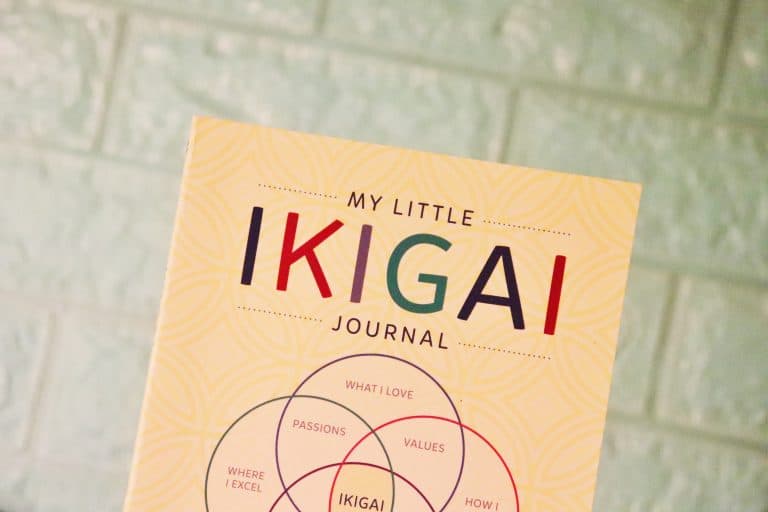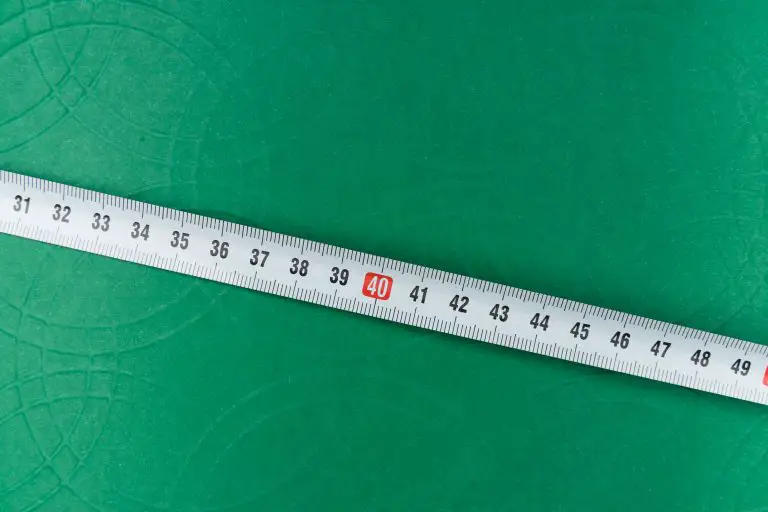How much money is enough to be happy? (Are you making enough!)
How much is enough to be happy?
If you’re living in the U.S., research suggests that you’d likely feel quite satisfied with life if you’re making around $75,000 a year. And for your emotional well-being, hitting around $95,000 a year seems to be the sweet spot. Now, if you’re in the UK, you’d probably feel happiest with an income of about £33,000 a year. But remember, these are just averages – what makes you happy could be different based on your personal needs and lifestyle!
It’s a age-old question: how much money is enough to be happy? The answer, of course, is different for everyone. But recent studies suggest that there may be a magic number when it comes to income and happiness: $75,000 per year.
While it’s true that money can’t buy happiness, it can certainly help provide a comfortable living standard. And research indicates that additional income doesn’t necessarily translate into more happiness once your basic needs are met. In fact, there’s a point at which more money actually starts to make people less happy.
So if you’re wondering how much money you need to achieve happiness, $75,000 per year may be the magic number.
This article will explore how much money is enough to be happy

How much money do you need to be happy?
We might find ourselves asking this question every day, week, month, year. How much food, water or exercise? If you’re a parent, it will probably revolve around sleep. I think 8 hours is close to a minimum, but my kids think it’s more like 3-4 broken hours.
The big question many of us have is how much money is enough to be happy? Enough for what though? To do whatever we want. To go to wherever we want. To give up / never work again. And ultimately to retire.
I am just reading at a great book – well so far so good – How much is enough? Money and the good life. By Edward Skidelsky and Robert Skidelsky. The key point they make is enough for a good experience.
Which means we just need to define what a good life is. The book looks at the five areas of health,
Leisure, Relationships, Security and Harmony with nature. But it doesn’t specifically mention how much money is enough for these things.
But I guess it will never be enough if you don’t know how much is enough.
How much money is enough to be happy and financially free?
Financial independence means having enough money to cover all your basics needs and a little bit more—financially free means you have everything covered up to your desired lifestyle.
If you have ever heard of the FIRE movement, financial independence retire early. They mention the 4% rule of thumb as a key indicator of how much might be enough.
The 4% rule
The 4% rule of thumb comes from several studies which state that if you withdraw 4% from your investments in the first year and then adjust for inflation, your money should last for 30+ years. Again, this depends on the size of your pot of money, but the simple math’s might look like this.
What’s a withdrawal rate?
It’s the amount of money that you can take out of your fund without it ever running out. If you withdraw too little, you’ll end up with loads of money on your death bed.
If you withdraw too much, you have the worst-case scenario of running out of money long before you run out of life.
If you get it just right, you’ll have enough money right to the end, and maybe some leftover to give to friends, families or good causes.
A safe withdrawal rate is a rate that lets you live a comfortable life right to the end in the style that you want.
Warning some math’s coming.
The 4% rule of thumb often confused with the 25X rule (below) is used to estimate how much you can withdraw from your portfolio to in theory never run out of money.
So if you had £1million across your portfolio of investments, you could withdraw 4% which would = £40k but still expect this portfolio to grow by at least 4% thereby never or nearly never running out of money.
The 25x times rule. This number helps you identify how much you might need across your accounts to be financially independent or retire. Let’s say you spend £40k per year so you would need a nest egg of around £1million. £40k x 25 = £1million. And then you withdraw 4% each year forever(ish).
You can determine your financial independence number by determining what you spend a year and X by 25. You may also see that the less money you spend, the less money you need to amass to be financially independent.
Therefore, it’s crucial knowing how much you spend. You may never know how much is enough without this, just that you keep wanting more.
And more and more means you might have to work for money forever. I’m not anti-work; I’m anti-work for money forever because you must. Surely there will come a time when you can’t or don’t want to work for money anymore!
How accurate are these figures, I hear you say?
Well, as with everything that depends on a few things within and outside of your control.
There is some discussion now amongst financial experts that the 4% rule is now too punchy and a 3% or 3.5% withdrawal rate is a safer bet. Either way, the 4% or 3.5% rule of thumb gives you a rough estimate of what you might need to live a financially comfortable life with enough money.
The things that are outside your control
Inflation: right now, in early 2020, inflation is at a significant low at 1.9%. However, it has been much higher in the early 1970s at 25% and in the early 1980s around 22%. Those types of highs would have been painful to deal with when buying even day to day goods. With inflation so low does it have anywhere else to go but up? No one knows.
What’s also outside of your control is the returns you get but what is inside your control is how much you put in and what fees you pay. This is why it’s essential to be clear on the types of risk you’re willing to take, the return you need and what it costs you every year in fees.
What the markets do going up or going down what the government of the day does with interest rates, taxes or spending plans.
What everyone else does whether they save, invest or not, or they spend all their money. A key challenge is how we view our friends or colleagues highlight reels through social media of what fabulous lives they’re living. This may make us want to compete with them or at least feel that we’re living like them.
What’s inside your control
But you can try and control your behaviour and habits. You can manage your rate of inflation. How expensive you are becoming to live with. Better and or more expensive food, nights out, increasing star holidays etc. All slowing edging upwards and upwards.
How you react to the daily and constant onslaught of adverts and psychological warfare compelling you to spend money on things you may or may not need or even want but are just drawn to buying. How you view and react to advertising will play a big part in how much of your money you get to keep and how much money you give away.
What you’re invested in: The 4% rule assumes getting a 4% and above return on your investments over the longterm. This may or may not be possible in the near or distant future. But it also depends on what your money is invested in. If you are hyper-cautious and have most of your wealth in low returning assets, generally bonds and cash, then you are unlikely to get the return you need to sustain your withdrawals.

How long do you intend to live?
Now, this is something you need to be really accurate on exactly how long do you intend to live?
Of course, no one knows the answer to this, but you can play a significant part in ensuring that your life is healthy overall.
You can eat well, not too much of this not too much of that plenty of greens etc. you can drink well plenty of water and appropriate smoothies. You can sleep well, ensuring you have enough hours to recharge yourself.
You can avoid the bad stuff like smoking, and processed foods process drinks drugs etc. just say no or not very often.
You can exercise regularly, whether that be a sports hobby or just general walking about all of these things can help keep you in good condition.
If you did all of these good things, then there’s a reasonable chance you would have a long healthy life minus getting hit by a bus or a freak yachting accident.
So if you expect to live longer, then it’s going to be very important that you have your finances set up for that long life.
The overall trend is though that we are all living longer and longer. Living longer’s probably much better if you are in good health and have enough money to live in a dignified, uncomfortable way.
How much money is enough money to be happy?
Just as we can train ourselves not to overeat, we should be able to train ourselves not to spend too much or to want too much. Will you be satisfied with having everything you want or wanting very little but having and loving that?
Money seems to be the one thing you can never have enough of. You can have enough food. You can have enough clothes, but it seems we can ever have enough money.
This is probably because we can never seem to have everything we want. For most of us, we can get everything we need, but there’s very few of us that can get everything we want. This can lead us to consume with no end in sight endlessly.
You only practically need so many coats, so many shoes, so many houses to live in. But because we are continually being told we don’t have enough or somebody has more than us we keep wanting more and more.
How much is enough needs to be worked out by each person. But this is going to require massive self-discipline to know when we have had enough. Just like after an enormous cake ice cream and strawberries, you might say I feel sick I’ve had enough will we have the insight and self-discipline to say I have enough!
Enough money to be happy would look like you being able to live in a style and location which met your reasonable needs and let you live in a comfortable and dignified way.
This, of course, maybe extremely subjective, and we need everybody to figure out at what point they had reached there enough. Because once each of us has figured out are enough, we will be free to enjoy our lives much more and constantly chasing the next thing.
Is enough money to be happy a figure or an attitude? Once we have the basics of food, water, shelter, medical needs, the ability to engage with friends, families and hobbies, and occasional luxuries or niceties, that might be enough for most of us.
At what point does money not make you happier?
Several studies show that an income of above £68,000 is where people reach a fairly happy or satisfactory level of income. I guess that means they can buy most of the things they need to go on the types of Holidays they like living the size of the house they want. Beyond this studies have shown there is a little additional happiness created.
You can’t live in more than one large house at a time and go on more than one luxury holiday at a time. I guess you can have more than one massive walk-in wardrobe, but the more clothes you have, the more and more choices you are bombarded with that are of little consequence, i.e. whether it’s the red or blue shirt.
Luxuries are by definition not a need but a want. And you should never prioritise luxuries over safely securing your needs.
FAQ: how much money is enough to be happy
How much money do you need to be truly happy?
The amount of money needed to be truly happy varies depending on individual circumstances, values, and lifestyles.
However, studies have suggested that there is a certain threshold, beyond which additional income does not significantly contribute to happiness.
A widely cited study by Princeton University in 2010 found that emotional well-being rises with income, but only up to about $75,000 per year in the United States.
Beyond that, additional income has a diminishing impact on happiness. It’s also important to note that happiness is influenced by various factors, not just money.
How much money is enough to live comfortably?
How much money your need to live comfortably is very subjective, depending on where you live, your lifestyle and your current and future needs.
Living comfortably means different things, but generally, it would mean being able to meet all your day-to-day needs, save for your short, medium and long-term future needs, deal with emergencies and be able to afford a few luxuries every now and again.
This exact figure needs to be worked out by you and your lifestyle goals.
How much money means happiness?
Money and happiness are usually found together when you have enough to meet day-to-day needs whilst also being able to plan, save and invest for the future.
For some people its an amount of money or investments in the bank for others its a feeling of being able to sleep well a night.
Its possibly an amount of money that means you don’t have to work but you do it because you enjoy it.
Is $100 000 a year good?
Yes, 100k a year is a good salary for most people.
But if you spend £100,001 a year, it probably feels like it’s not enough.
It’s not really what you earn that counts but what you get to keep.
How much money do I need to be happy?
You probably need enough money to meet all your daily needs whilst building up enough money for medium and long terms needs. And having enough money to deal with emergencies that come your way.
How much money do you need to live a good life?
In the UK, the amount of money needed to live a good life varies based on factors such as location, lifestyle, family size, and personal preferences.
For example, living in London is generally more expensive than living in smaller cities or rural areas.
In September 2021, a report by the Joseph Rowntree Foundation suggested that a single person in the UK needs to earn at least £18,400 a year before tax to achieve a minimum acceptable standard of living. For a couple with two children, this figure rises to around £40,000 a year.
However, for a more comfortable lifestyle that includes holidays, leisure activities, a larger housing budget, and savings, the required income would be higher.
Some suggest that earning around the UK average salary, which was approximately £30,000 per year as of 2021, or slightly above, could be considered as living a good life.
It’s also important to consider non-financial aspects of a good life, such as work-life balance, social relationships, health, and personal fulfilment.
Spending your money on things that bring you joy.
When you are not spending on things that give you lasting happiness, you may find very limited satisfaction in what you spend your money on. In fact, you will probably want a new or different thing very soon. I’m not talking about food here as we need that every day – so have to keep buying it. But things that you buy that are beyond what you need and more like what you want.
Spending money on things, people and places that can be classed as experiences are often the keys to happiness. Experiences can leave you with a lasting memory, photos that spark the feelings of that day, those people, that place. This is where we can find lasting happiness form what we spend our money on.
If you can satisfy your needs, you will be doing materially and psychologically. However, if you want to satisfy your wants then you are probably going to be working and unhappy forever. You are likely to always want more and therefore need to earn more and more money to pay for it.
Drop me a line if you would like to figure out how much money is enough to be happy for you.
How much money do you think is enough to be happy? Let me know in the comments below.
Need a Helping Hand with Your Finances? 🤝💰
If you’ve made it this far, congratulations! You’re already taking steps towards a healthier financial future. But maybe you’re feeling a bit overwhelmed. Maybe the thought of budgeting, saving, and investing still makes you break out in a cold sweat. Don’t worry, you’re not alone, and help is available.
At Financially Happy Money Coaching, I understand that money isn’t just about numbers. It’s about emotions, behaviours, and life choices. That’s why we’re here to help you take the stress out of money and build wealth in a way that aligns with your values and lifestyle.
Whether you’re just starting out on your financial journey or you’re looking to take your finances to the next level, we’re here to guide you every step of the way. I’ll help you understand your financial behaviours, set realistic goals, and create a personalized plan to achieve those goals.
So, why wait? Start your journey towards financial happiness today. Remember, the best time to start was yesterday. The second best time is now.
Click here to schedule your consultation and let’s make your money work for you, not vice versa. 💪💰
Remember, financial freedom isn’t a destination; it’s a journey. And every journey is easier when you have a guide. So, let’s embark on this journey together and create a financially happy future. 🚀💸







